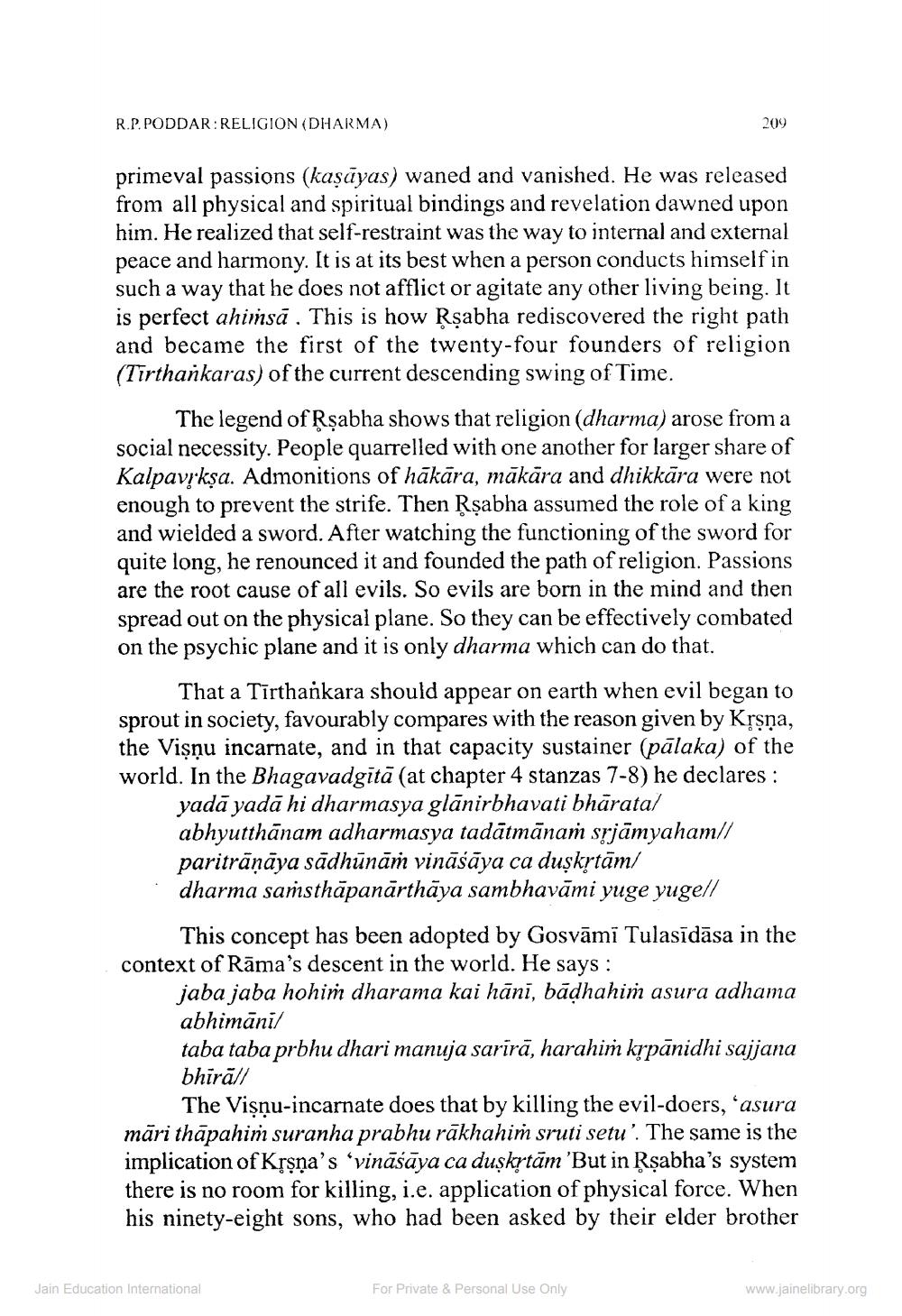Book Title: Jain Journal 2004 04 Author(s): Jain Bhawan Publication Publisher: Jain Bhawan Publication View full book textPage 8
________________ R.P. PODDAR:RELIGION (DHARMA) 209 primeval passions (kasāyas) waned and vanished. He was released from all physical and spiritual bindings and revelation dawned upon him. He realized that self-restraint was the way to internal and external peace and harmony. It is at its best when a person conducts himself in such a way that he does not afflict or agitate any other living being. It is perfect ahimsā . This is how Rşabha rediscovered the right path and became the first of the twenty-four founders of religion (Tirthankaras) of the current descending swing of Time. The legend of Rşabha shows that religion (dharma) arose from a social necessity. People quarrelled with one another for larger share of Kalpavykşa. Admonitions of hākāra, mākāra and dhikkāra were not enough to prevent the strife. Then Rşabha assumed the role of a king and wielded a sword. After watching the functioning of the sword for quite long, he renounced it and founded the path of religion. Passions are the root cause of all evils. So evils are born in the mind and then spread out on the physical plane. So they can be effectively combated on the psychic plane and it is only dharma which can do that. That a Tīrthankara should appear on earth when evil began to sprout in society, favourably compares with the reason given by Krşņa, the Vişņu incarnate, and in that capacity sustainer (pālaka) of the world. In the Bhagavadgitā (at chapter 4 stanzas 7-8) he declares : yadā yadā hi dharmasya glānirbhavati bhārata/ abhyutthānam adharmasya tadātmānam srjāmyaham// paritrāņāya sādhūnām vināšāya ca duşkytām/ dharma samsthāpanārthāya sambhavāmi yuge yugell This concept has been adopted by Gosvāmi Tulasīdāsa in the context of Rāma's descent in the world. He says: jaba jaba hohim dharama kai hāni, bādhahim asura adhama abhimani/ taba taba prbhu dhari manuja sarīrā, harahim kịpānidhi sajjana bhīrāll The Vişnu-incarnate does that by killing the evil-doers, ‘asura māri thāpahim suranha prabhu rākhahis sruti setu'. The same is the implication of Kțşņa's 'vināšāya ca duşkytām 'But in Rşabha's system there is no room for killing, i.e. application of physical force. When his ninety-eight sons, who had been asked by their elder brother 47 Jain Education International For Private & Personal Use Only www.jainelibrary.orgPage Navigation
1 ... 6 7 8 9 10 11 12 13 14 15 16 17 18 19 20 21 22 23 24 25 26 27 28 29 30 31 32 33 34 35 36 37 38 39 40 41 42 43 44 45 46 47 48 49 50 51 52 53 54 55 56 57 58 59 60 61 62 63 64 65 66 67 68 69 70 71 72 73 74
